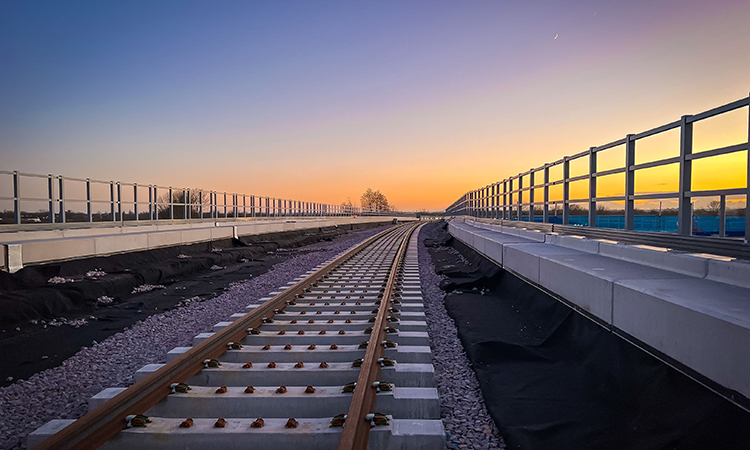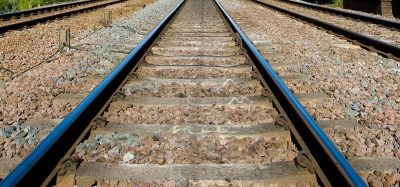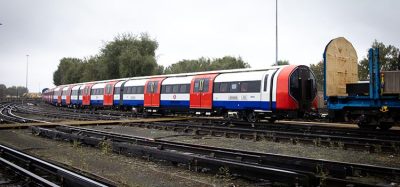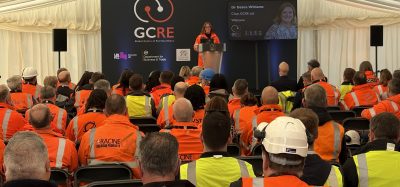East West Rail commit to 10% net biodiversity gain target across whole project
Posted: 16 June 2023 | Elliot Robinson (Editorial Assistant - Global Railway Review) | No comments yet
East West Rail have already established 20 Ecological Compensation Sites across the first connection stage of the project.


Credit: East West Rail Company
Wildlife habitats created across the first connection stage of East West Rail (EWR) are flourishing following successful ecological compensation measures. East West Railway Alliance (EWRA) has created 20 Ecological Compensation Sites (ECS) along the length of the Project route from Bicester, in Oxfordshire to Bletchley, in Buckinghamshire, to protect and reduce the impact to important and protected species and habitats along the line of the railway.
East West Railway Company (EWR Co), which is responsible for planning the rest of the Project between Bletchley and Cambridge, now wish to continue the success of work carried out by EWRA. In its latest proposals, the Company committed to an ambitious target of 10% biodiversity net gain across the whole Project.
The ECS created by EWRA aim to enhance habitat connectivity along the route and improve existing habitat features where possible. Many of the sites have been transformed from low diversity, arable land into purpose-built wildlife havens designed to benefit invertebrates, butterflies, birds, bats, reptiles and amphibians, otters and badgers.
The sites – which incorporate 45 ponds, badger setts, a bat house, more than 70 bat boxes and the planting of more than 150,000 plants and trees – benefit some especially important species and habitats associated with the Project. These include black poplar trees – the most endangered native timber tree in Britain – the rare black hairstreak and other hairstreak butterflies, and barbastelle bats – one of the rarest species of mammals in the UK listed as Near Threatened on the global IUCN Red List of Threatened Species.
Related content you will enjoy:
New proposals bring East West Rail Oxford-Cambridge rail service one step closer
ECS and new habitats created by EWRA are now established with surveys showing positive results:
- Two species of bat are now roosting in a specially-constructed bat house, built to replace the Swanbourne Station building. Three further species have been recorded visiting the structure: Brown-long eared, Natterer and Daubenton
- Bat numbers across the Project have remained stable since the first surveys in 2021, suggesting bats have coped well with the construction phase of the Project. Static detector and transect surveys have identified 12 species of bat passing through or using ECS
- All of the new ponds created have confirmed great crested newt populations
- 10 out 11 barn owl boxes have shown evidence of breeding during surveys
- 27 artificial badger setts built have all been occupied by badgers, with a fifth of them used for breeding
- An artificial otter holt is being used regularly by otters.
“Reducing the Project’s environmental impact has been a crucial factor in designing and building East West Rail, which is why we have been working closely with ecologists, engineering designers and construction teams to preserve or improve habitats at every opportunity,” Mark Cuzner, EWRA Director, said. “We are delighted that our Ecological Compensation Sites are proving to be a huge success and there are management plans in place for all of them to ensure they continue to flourish for many years to come.”
“The UK has suffered a significant loss of flora and fauna over recent decades, so it is fundamental that we not only preserve and conserve these along the rail route but do our bit to increase the chances for nature and wildlife,” Vanessa Hilton, Head of Environment for EWR Co, said. “It’s great to know that these Ecological Compensation Sites are doing well, along with our wider landscape replanting work and that is why we have committed to a 10% biodiversity net gain across the length of the whole Project. Learning from the work that has already been done, and with local interest and nature groups, we’re confident we can repeat this success story for the wildlife between Bletchley and Cambridge.”
Other environmental successes by EWRA include:
- 95% of all works under Protective Provision consents from the Environment Agency, Lead Local Flood Authorities and Internal Drainage Board have been successfully completed. The remaining 5% of works will be completed in 2023
- All compensatory flood storage areas have been built
- No net loss of watercourse extents has been achieved, with all river realignments and channel works completed.






